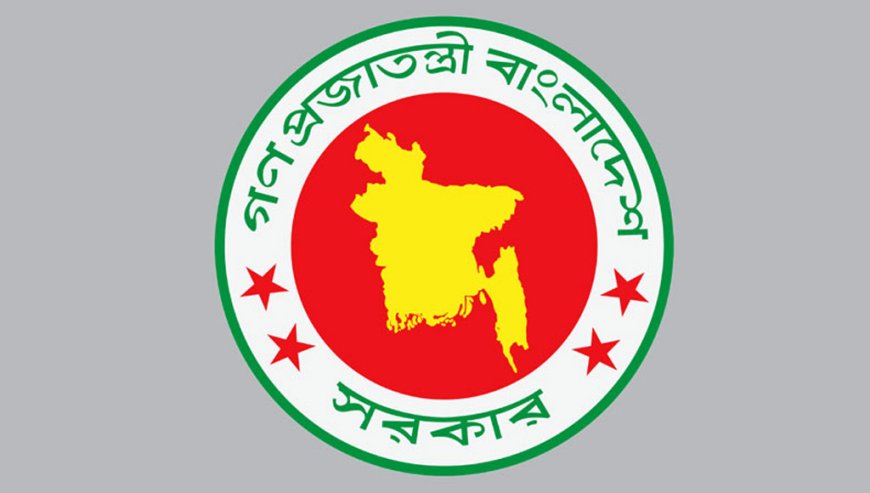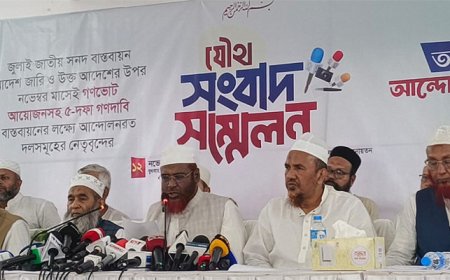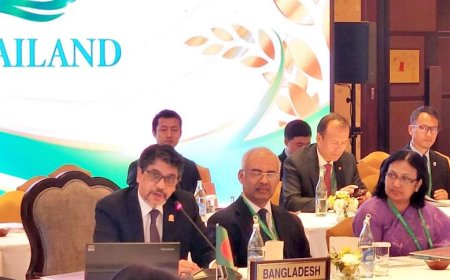100 Days of the Interim Government: Administrative Turmoil and Continued Contractual Appointments
100 Days of the Interim Government: Administrative Turmoil and Continued Contractual Appointments

In the first three months of the interim government, there has been no significant improvement in the administration, nor has it gained momentum. Despite removing officials appointed on contract during the previous Awami League government, the current administration has continued to make contractual appointments.
The post of Secretary at the Ministry of Local Government has been vacant for over a month, and three other ministries remain without secretaries. Sources indicate that the administration is merely carrying out routine tasks and has not made any major decisions.
Since taking office, the interim government has removed 101 officials who were appointed on contract by the former government, but it has appointed 65 new officials on similar terms. Secretaries have been appointed on two-year contracts at key ministries, including the Cabinet Division, Prime Minister's Office, and the Public Administration Ministry. Senior officials have also been posted on contract in organizations like the police, agriculture ministry, BTRC, and city corporations. Additionally, 80 officials, ranging from assistant secretaries to senior secretaries, were made Officers on Special Duty (OSD).
Officials from the Public Administration Ministry stated that several individuals who retired 6-8 years ago are being appointed as secretaries on contract, despite being out of touch with the current administration. This has resulted in delays in decision-making.
Experts argue that while the government has the right to appoint officials on contract, the interim government's approach appears random, with certain individuals getting important posts due to political backing. This has caused disruptions in the administrative framework.
In the last three months, the government promoted 501 officials, including 12 to the rank of secretary and several others to the positions of additional secretary, joint secretary, and deputy secretary. Some of these individuals had previously benefited from the past government and are facing departmental allegations or Anti-Corruption Commission cases.
The Cabinet Secretary, who holds the highest administrative post, was appointed on a two-year contract in October. Several other senior officials from the BCS-82 batch, many of whom had retired years ago, have also been reappointed to key positions. Critics have pointed out that such appointments, especially of older officials, may not be suitable for vital positions.
Apart from administrative posts, several other important roles have been filled with contractual appointments, including positions in the High Court Division, the Bangladesh Telecommunication Regulatory Commission (BTRC), the Gazipur Development Authority, the police, and the Barind Multipurpose Development Authority.
Concerns have been raised regarding the lack of a new secretary in the Ministry of Local Government, as well as in the Ministries of Cultural Affairs, Rural Development, Fisheries, and Livestock. The delay in making decisions in key ministries like Education and Health has caused significant administrative stagnation.
While the previous caretaker governments in 2001 and 2007 made swift changes to improve the pace of the administration, the current interim government has been slow in implementing major reforms. Some critics suggest that many of the officials appointed under the current administration were neglected in the past and may have been promoted sooner under normal circumstances.
Overall, the process of appointing officials on contract appears inconsistent, with some individuals seemingly benefiting from personal connections rather than merit. Experts recommend that the government establish clear guidelines for such appointments to ensure transparency and efficiency.
What's Your Reaction?





















































































